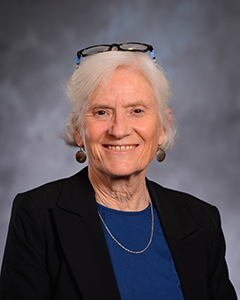By Audrey Carleton – VICE
Human composting is a more environmentally-friendly alternative to cremation or burial, and it’s spreading across the US.
Oregon is now the third state in the US to allow a deathcare option that’s gaining popularity for its environmental benefits: human composting.
Gov. Kate Brown signed House Bill 2574 into law on Tuesday, adding natural organic reduction to the range of approved after-life options in the west coast state. Sponsored and developed by Rep. Pam Marsh (D – Southern Jackson County), the bill met Oregonians’ growing interest in sustainable alternatives to traditional deathcare.
“This is a hard issue for people to think about; it’s not a decision that any of us get to avoid,” Marsh told Motherboard over the phone. “It has an appeal, certainly not to all consumers, but to many of us who are really looking for ways to think about how our footprint on the earth continues after life is gone.”
The move heeds a growing call from environmentalists across the country to clean up the end-of-life industry. The most common methods of body disposal come with hefty environmental impacts: traditional burials, in which a corpse is embalmed with formaldehyde and placed in a casket underground, permanently occupy large swaths of land and have been found to leach toxins into nearby soil and waterways. Cremation–in which a body is burned into ash—is an energy suck and emits damaging pollutants and carbon dioxide into the atmosphere, contributing to global warming.
By comparison, the process of so-called natural organic reduction, which breaks down the body into soil, has a small environmental footprint. For example, Recompose, the country’s first human composting funeral home does it like this: a corpse is placed in a cylinder with organic materials, like wood chips, plants, and straw, then heated and turned repeatedly for several weeks with a hook until it’s broken down into a nutrient-rich soil that can be delivered back to the family or used for planting.
Human composting is the latest of a handful of environmental deathcare options to gain traction across the country as available cemetery space declines and emissions from cremation mount.
Before human composting gained traction, green burials—in which the body is prepared without chemicals and planted underground in an organic, biodegradable container, often underneath a tree sapling—emerged in 1998 as an alternative to traditional high-impact burial methods, according to the Green Burial Council. Lauded as an environmentally superior deathcare method, it also makes reckoning with death easier for some. It’s a difficult topic, says Jodie Buller, board member of the Conservation Burial Alliance, but knowing that you or a loved one can die sustainably—through composting or green burials—makes it easier to handle.
“It feels like a very peaceful option,” Buller said. “The idea that the soil that someone becomes then can be used to nourish plants feels really good to people. It helps break down some of that taboo around death and dying.”
Oregon’s law, slated to go into effect in July, 2022, follows similar momentum in neighboring states. Washington became the first in the U.S. to legalize natural organic reduction in 2019, which led to the opening of Recompose. In May, Colorado did the same.
The practice remains illegal in most states, leaving those who want an eco-friendly end-of-life option stuck with a limited range of options. But legislators in states like New York and Delaware have, in recent months, considered bills that would change this. If adopted widely across the country, human composting could cut down on the U.S. funeral industry’s environmental impact and, Buller says, change the way we talk about death.
“Our culture has been in either witness or avoidance mode,” she said. “I think it’s a signifier of larger movements… away from fear, and toward curiosity, around how to make death and dying more meaningful and more personally engaging,” she said.
